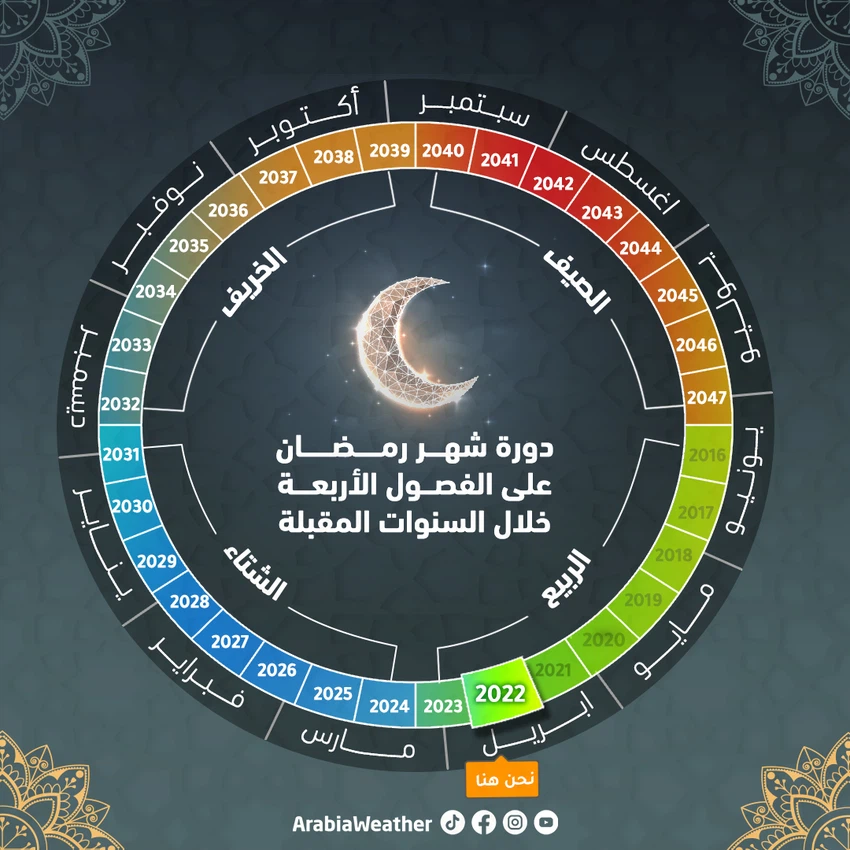Why does the date of Ramadan poetry change every year?
Arab weather - Muslims follow a lunar calendar with regard to religious matters, i.e. a calendar based on the phases of the moon, where the total days of the year consisting of 12 months amount to approximately 354 days, and this is 11 days shorter than the number of days in the year in the Gregorian calendar followed in the world Which is 365 days, so the Islamic lunar calendar moves back approximately 11 days each year compared to the regular Gregorian calendar.
That is, the first day of Ramadan , which is the ninth month of the Islamic lunar calendar, moves backward by about 11 days each year .

Benefits of changing the date of Ramadan every year
The change in the date of Ramadan every year has a significant impact on how people experience the month of Ramadan from year to year. The amount of fluid lost by the body, so it does not have a great need for water during fasting hours.
On the contrary, when the month of Ramadan falls in the summer , when the days are longer, and fasting can be some difficulty for Muslims in many Islamic countries in the Middle East and Africa, especially with the hot weather and temperatures that reach high levels in the summer.
In some northern European countries such as Iceland, Norway and Sweden, fasting hours in the summer may be extended to 20 hours or more, and in a few places above the Arctic Circle, the sun never sets in the summer, so Islamic religious authorities there have decreed that Muslims can either Fasting with the nearest Islamic country or fasting with the timing of Mecca.
Arabia Weather App
Download the app to receive weather notifications and more..



